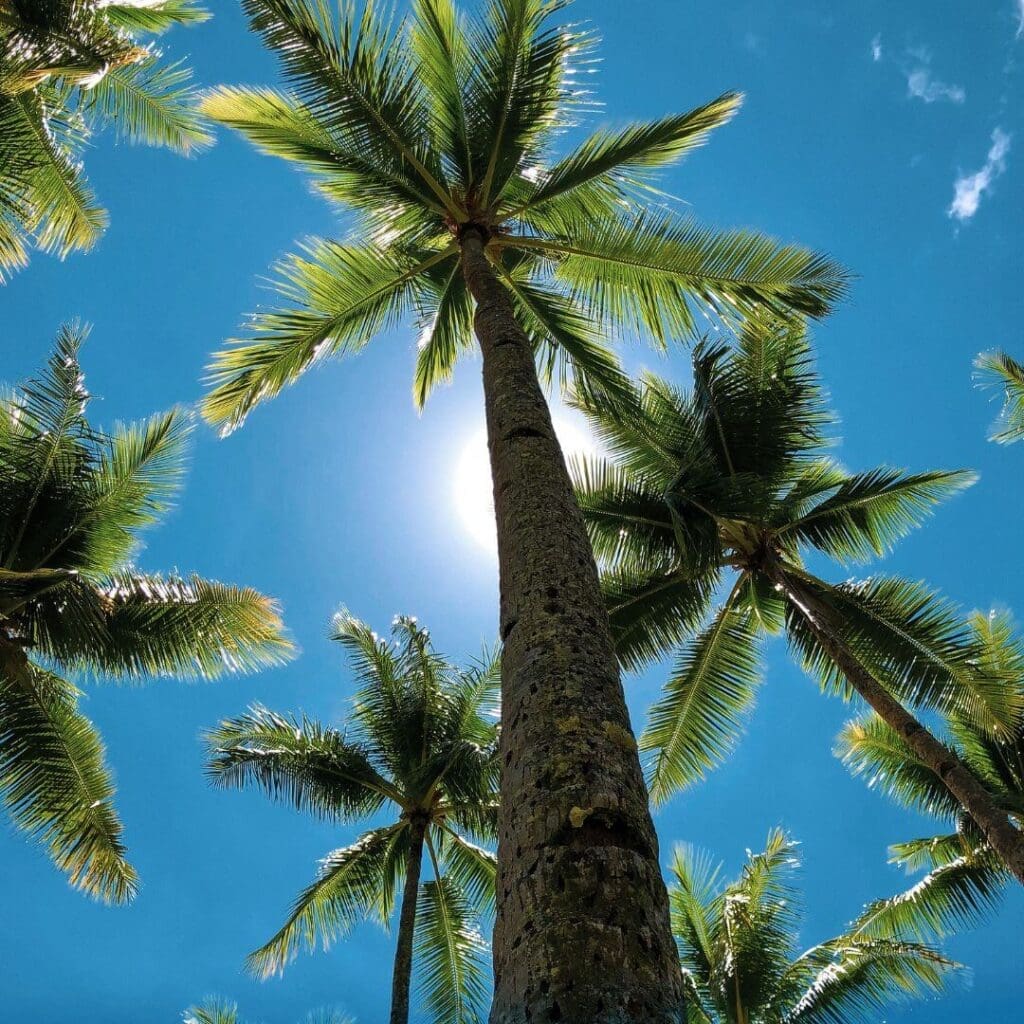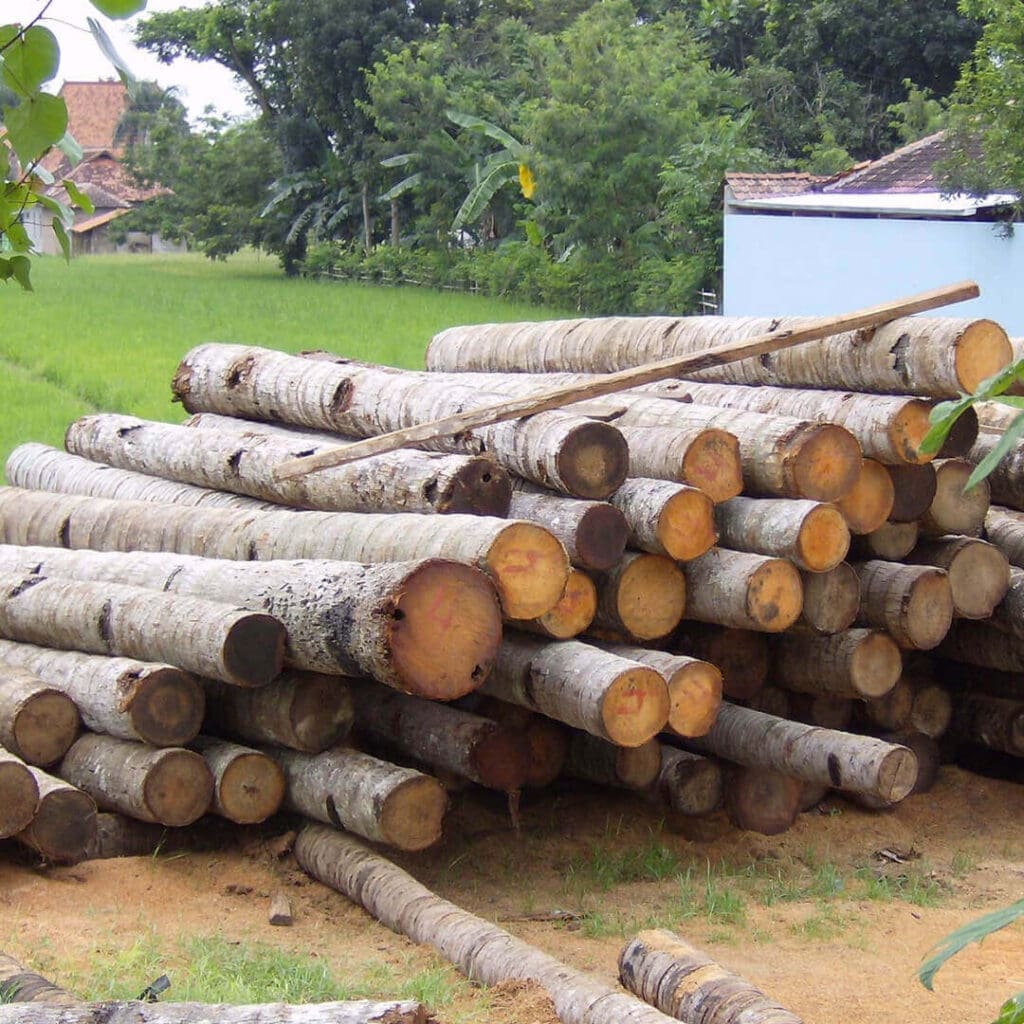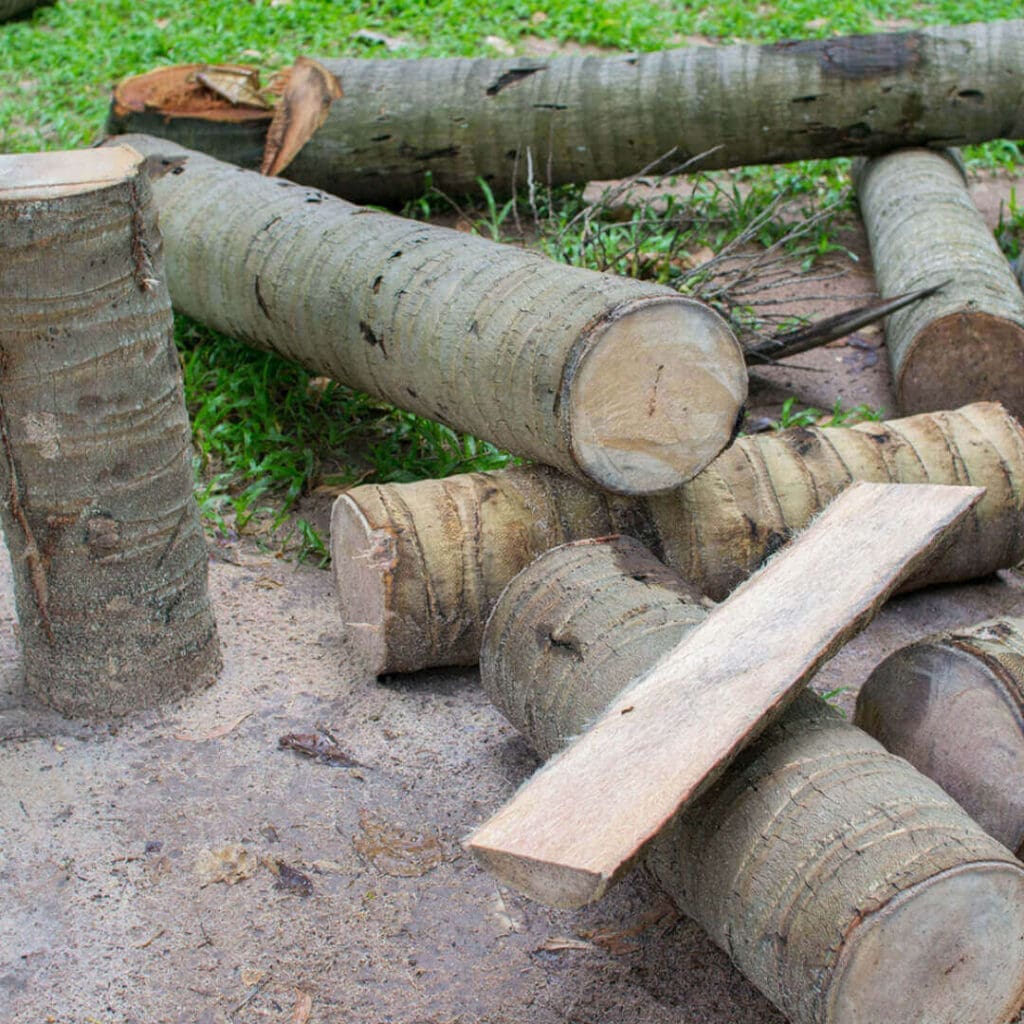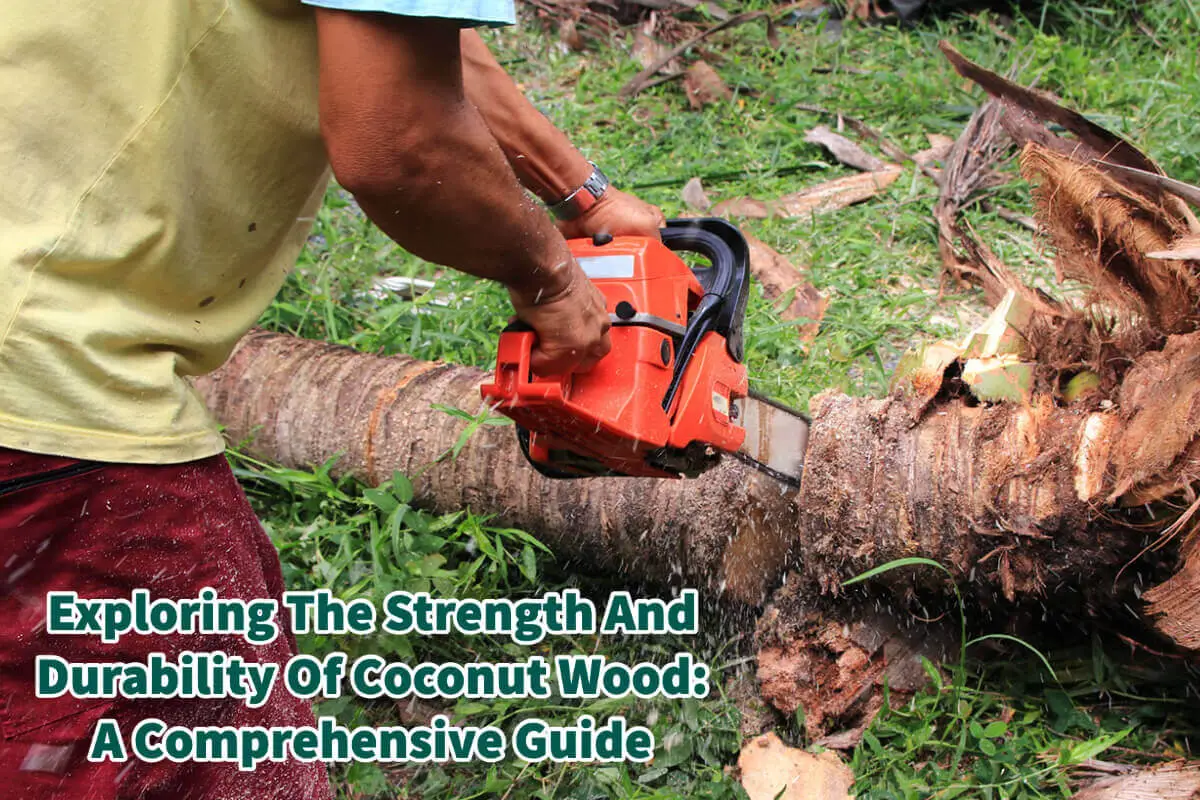Lately, several of our clients have asked us about coconut wood. Coconut wood is a unique and beautiful type of wood.
Coconut wood is pretty strong; coconut wood’s strength is similar to maple, oak, and some other hardwoods. It is also considered an environmental hardwood as the coconut tree is only cut down once it no longer produces fruit. There are many qualities of coconut wood that you do not find in other woods; some of these qualities can limit what a designer can do with the wood. Read on to discover more about coconut wood.
Table of Contents
- What Is Coconut Wood?
- Unique Characteristics Of Coconut Wood
- Comparing Coconut Wood To Other Hard Woods
- Related Content
What Is Coconut Wood?

Coconut wood is an increasingly popular material for home decor; the overall strength of coconut wood depends on how it has been treated and what it’s used for.
Coconut wood is a natural and sustainable material, becoming increasingly popular for its unique beauty, durability, and environmental benefits.
Coconut wood comes from the coconut palm tree’s trunk, a tropical plant that grows abundantly in many parts of the world. Coconut wood is harvested from older and non-productive coconut trees no longer suitable for coconut production.
Because it is harvested from coconut trees that can no longer produce fruit, coconut wood is a sustainable and eco-friendly material that is both renewable and biodegradable.
Unique Characteristics Of Coconut Wood

Besides being a unique wood for home decor items, coconut wood has some characteristics that make it different from other woods.
Strength And Durability Of Coconut Wood
Coconut wood is known for its exceptional strength, hardness, and durability. The wood is hard and dense, which gives it excellent resistance to wear, impact, and deformation.
Coconut wood has a Janka hardness rating of 1,070 lbs, comparable to many common hardwoods such as oak, maple, and teak. This makes it a unique kind of tropical hardwood.
Coconut Wood Has Natural Oils
The natural oils and resins in coconut wood also make it highly resistant to decay, termites, and other wood-damaging insects. Coconut wood is more resistant to decay and insects than many other hardwoods.
Coconut Wood Is Usually Not Joined
Coconut wood is usually not joined by glue because it contains many natural oils, resins, and silica, making it difficult for the glue to adhere properly. These natural compounds in coconut wood can prevent the glue from penetrating the wood fibers and creating a solid bond, resulting in weak or unstable joints.
Instead of glue, coconut wood is often joined using traditional joinery techniques such as mortise and tenon, dowel, or dovetail joints. These techniques rely on the mechanical interlocking of the wood fibers to create strong and durable joints without glue.
Moreover, coconut wood’s high oil and resin content makes it resistant to decay, insects, and water, which means it can be used in outdoor applications without additional protection or coatings.
The Workability Of Coconut Wood Explored
Coconut wood is generally easy to work with and can be sawn, drilled, and sanded with standard woodworking tools. However, due to the high oil and silica content, coconut wood can be difficult to glue or finish, limiting what can be done with coconut wood for products.
The Appearance Of Coconut Wood
Coconut wood is known for its beautiful and unique appearance. The wood has a light to dark brown color with natural patterns and markings that give it a distinctive and rustic look. The color and texture of coconut wood can vary depending on the tree’s age and the location where it was harvested.
Coconut Wood Is Usually A Smaller Size Wood
As coconut wood is a wood that does not join together well, it is usually made into smaller size items. That is why you usually see coconut wood as smaller bowls and utensils.
Many manufacturers will limit the size of the coconut wood to about 6” wide by 10” high. This can also vary according to what variation of coconut tree they use for the wood and how tall or thick the tree trunk will grow.
Comparing Coconut Wood To Other Hard Woods

Coconut wood is comparable in strength and hardness to many common hardwoods such as oak, maple, and teak. However, coconut wood is lighter and more porous than these hardwoods, making it easier to work with and more suitable for specific applications such as decorative home items.
When properly dried, treated, and cared for, coconut wood can be substantial. But the wood must be dried and treated by a manufacturer who understands this kind of wood.
Coconut wood is a strong, durable, and eco-friendly material ideal for various home decor design applications. Its unique beauty and natural durability make it a popular choice.
If you have any questions about how coconut wood is strong or need advice on selecting the best material for your project, don’t hesitate to reach out to Mondoro so we can see how we can help you.
If you are interested in seeing how Mondoro can be a valuable partner for you for wood furniture products – we would love to talk to you to see how we can help you.
Find out more about how Mondoro can help you create, develop, and manufacture excellent home decor and furniture products – don’t hesitate to contact me, Anita. Check out my email by clicking here or become a part of our community and join our newsletter by clicking here.
Mondoro gives out a FREE Lookbook to anyone interested. You can receive a copy of our latest Lookbook by clicking here.
Listen to our Podcast called Global Trade Gal. You can find it on all major podcast platforms. Try out listening to one of our podcasts by clicking here.
Subscribe to our Mondoro Company Limited YouTube Channel filled with great videos and information by clicking here.
Related Content
What Is Algum Wood? And Other Biblical Facts
Algum wood is a wood that was referred to in the Bible that King Solomon used to build his temple. We know that King Solomon would have used the finest materials to build this temple, so Algum wood was likely an exceptional and expensive wood.
You can discover more by reading What Is Algum Wood? And Other Biblical Facts by clicking here.
Difference Between Solid Sheesham Wood And Teak Wood
Solid Sheesham Wood and Teak Wood are both very different kinds of woods. Even though they are both considered hardwoods, Sheesham wood is softer than teak. Sheesham wood is also considered less durable than teak wood. Many premier manufacturers consider teak wood the ”king of woods.”
You can discover more by reading our blog, Difference Between Solid Sheesham Wood, And Teak Wood by clicking here.
What Does “FSC Certified” Wood Mean?
FSC means the Forrest Stewardship Council, a nonprofit certification process to ensure that wood used for products is from a managed forest. The goal of the FSC is to stop illegal logging activities and certify that wood used for a product has reached the standard to be called FSC-certified wood.
You can discover more by reading our blog What Does “FSC Certified” Wood Mean? by clicking here.


